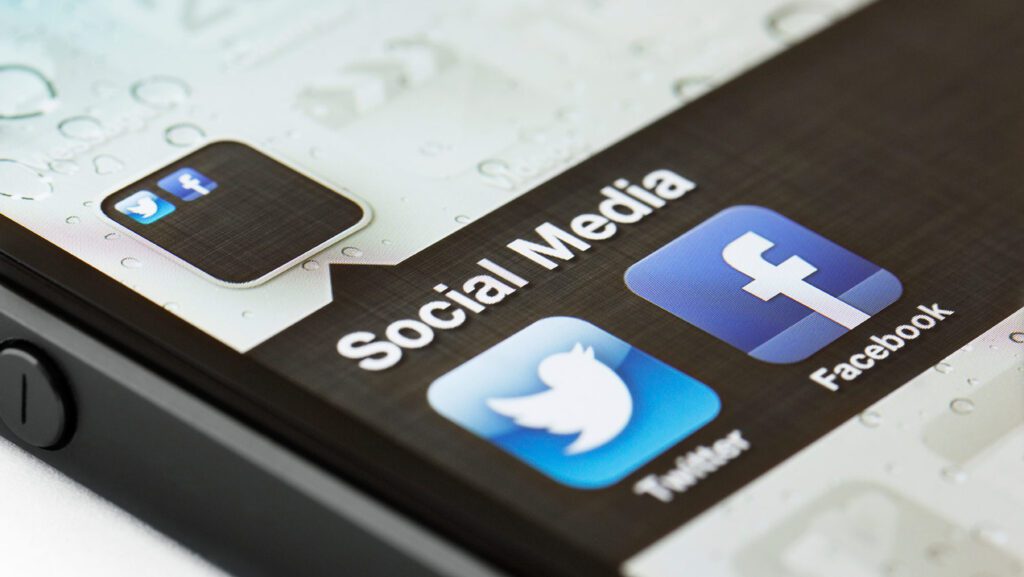 10 Social Media Instructions for Injured People
10 Social Media Instructions for Injured People
Most of us today carry cell phones in our pockets with more processing power than the computers aboard the Apollo moon missions. Frequent news reports illustrate the dangers of thoughtless use of smartphones and social media. It has ensnared politicians and celebrities, sometimes crashing promising careers. This technology has created similar hazards for both plaintiffs and defendants in litigation who are careless about online social media privacy. While we are quick to look for the other side’s vulnerabilities, we must also play defense in protecting our clients from their own electronic blunders.
Many people today, especially younger ones, think nothing of sharing details of personal lives with the world through social networking sites. For this very reason, insurance companies, investigators, and defense lawyers may seek to compel access to social media accounts, computers, cell phones, and hard drives. Careless use of social media can be a kind of self-surveillance, a gift to the other side.
Information from such sources may be used to embarrass or discredit you when you are hurt. It may be used to falsely suggest that the your are exaggerating or that something else caused the injury. Even innocent joking between friends on social media might convince judges and juries that a plaintiff has been dishonest.
Here are ten precautions to avoid self-inflicted wounds through use of social media – Facebook, Twitter, Instagram, etc.
Archive the content of current accounts.
Destruction of potential evidence may create bigger problems than the information itself. Therefore, it is important to preserve the current content of any social media accounts. Most social media sites include directions for archiving. We designate a staff person to help clients archive correctly.
Deactivate or discontinue using social media accounts.
If you are going to be the plaintiff in a personal injury case, consider deactivating your Facebook profile and other social media accounts. If you are not willing to completely deactivate an account you should—after archiving content —remove any information related to your injury or activities and avoid future posts.
Turn on the highest privacy setting.
If you won’t discontinue use of social media, adjust privacy settings to the highest levels. This means making sure that only actual friends can see the information, rather than friends of friends or the general public. A useful tool is Facebook’s “View As” feature, which allows users to view their profile as it appears to someone else, whether a stranger or a Facebook friend. This might help you see exactly what is visible to the general public, something that isn’t always apparent from privacy settings. Be aware that Facebook publicly publishes “Interests,” even if accounts are otherwise private.
Beware of “friends.”
If social media use continues, it is important to edit “friend lists” so that only certain friends can see photo albums and status updates. Remove any “friends” you do not know well or at all, and accept only friend requests from people you know and trust.
Become invisible.
You can remove yourself from Facebook search results by selecting “only friends” under the “search visibility” option in their profile settings. You can also remove your Facebook page from Google by unchecking the box for “Public Search Listing” in your Internet privacy settings. Make comparable changes to privacy settings in all other social media accounts.
Take down photos.
After archiving current content, remove and un-tag all photos of yourself that are not simple head shots.
Be cautious.
Assume that anything you write on your social media accounts—including status updates, messages, and wall postings—will at some point be seen by defense lawyers, judges, and juries. Think about how such things might be perceived when viewed out of context.
Preserve all computers, tablets, or cell phones.
If you lose or destroy an electronic communications device, opposing counsel could try to make it look like deliberate destruction of evidence. It is better to fight a battle over access to your devices than have a judge instruct a jury that it may assume the contents of the discarded or destroyed device would have been unfavorable to you.
Don’t send messages or information about the case.
Do not send emails, text messages, or “private” social media messages about your claim, health, or activities to anyone except your lawyers. Careless emails and electronic messages can destroy a case.
Don’t post on websites or web chat groups.
While you may find useful information in online support groups, you don’t own the information you post online. Such information you post is highly searchable. You should not enter any information on dating or insurance websites, post on message boards, participate in or comment on social media “private” groups or blogs, or use chat rooms.
This post is adapted from an article published in the January 2016 issue of Trial magazine by Ken Shigley, a double board certified trial lawyer in Atlanta, Georgia. He has served as president of the State Bar of Georgia, chair of the largest practice area section of the American Association for Justice (Motor Vehicle Collision, Highway & Premises Liability Section), and chair of the Institute for Continuing Legal Education in Georgia board of trustees. He is lead author of Georgia Law of Torts: Trial Preparation & Practice (2010-2016) and a chapter author of the 2016 edition of Handling Motor Vehicle Accident Cases, both published by Thomson Reuters. He can be reached at ken@shigleylaw.com.
Pensacola Personal Injury Lawyer, Joe Zarzaur, founder of Zarzaur Law has created this blog in an effort to educate the many citizens and visitors of Pensacola, Florida about their legal rights. Joe Zarzaur knows the ins and outs of Florida law, and offers friendly-quality legal help whether you have experienced an auto accident/car wreck, have been a victim of medical malpractice or are in need of a personal injury lawyer.
11 E Romana Street
Pensacola, FL 32502
Telephone: 850-444-9299
Email: info@zarzaurlaw.com
Follow us on Twitter: @zarzaurlaw
Like us on Facebook: https://www.facebook.com/zarzaurlaw
Check us out on Google+: https://plus.google.com/+ZarzaurLawPensacola